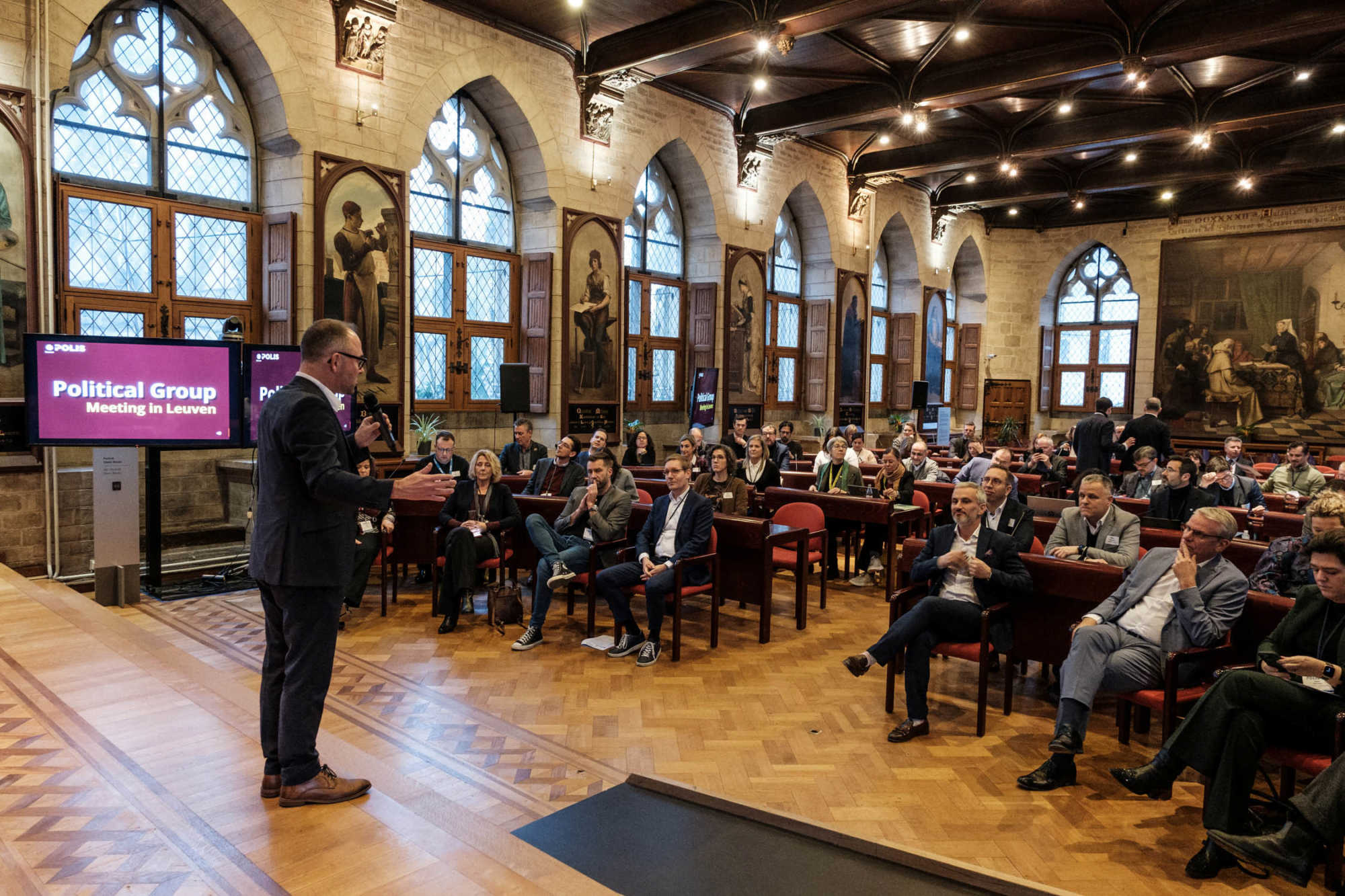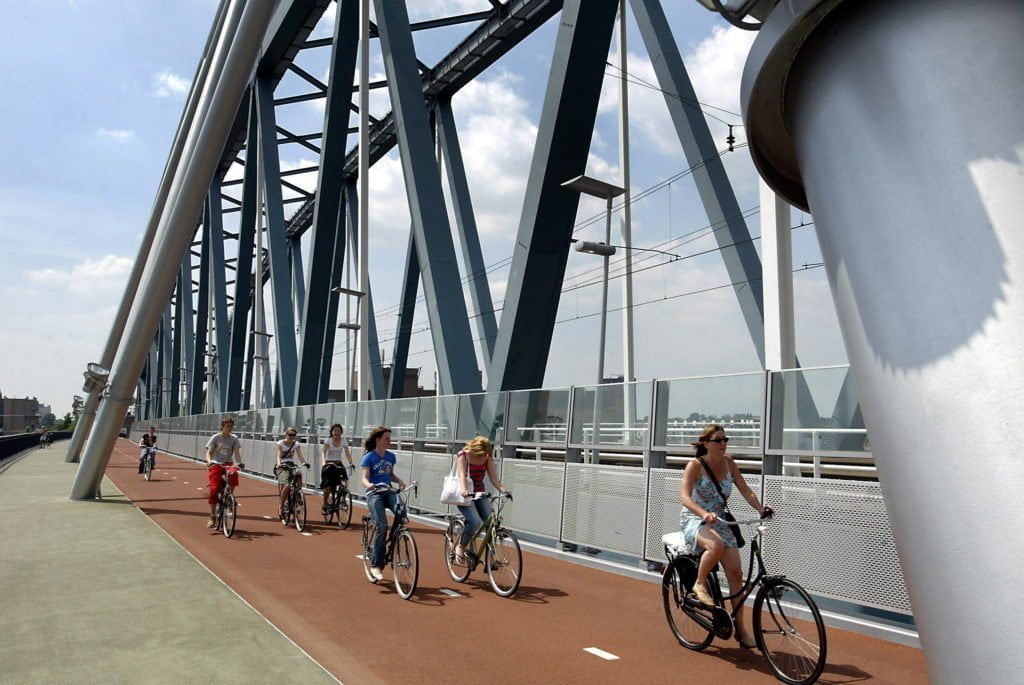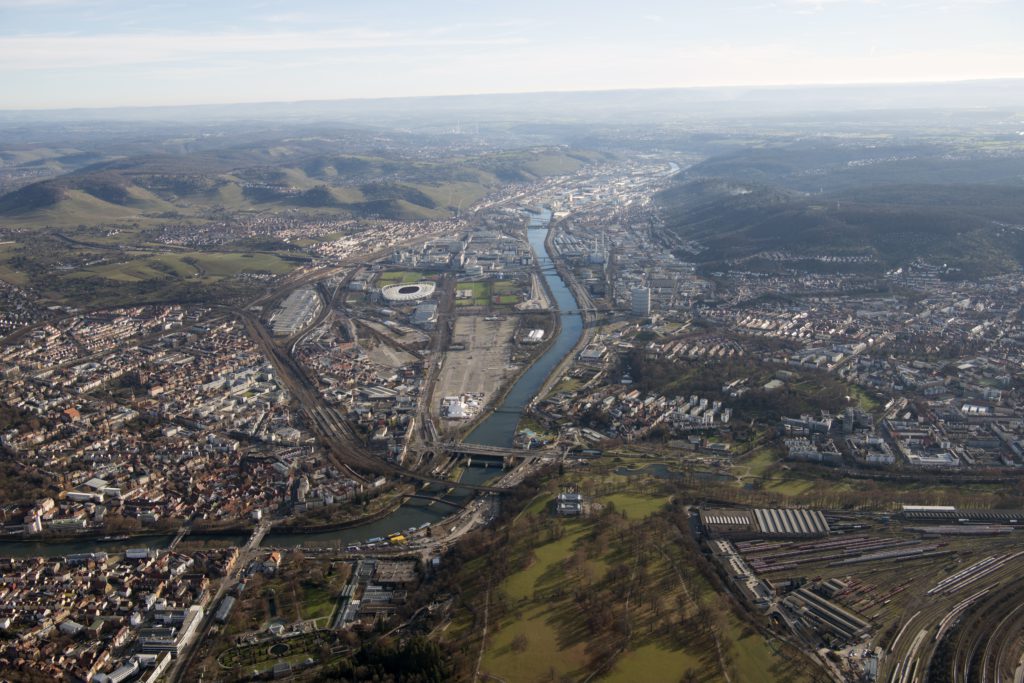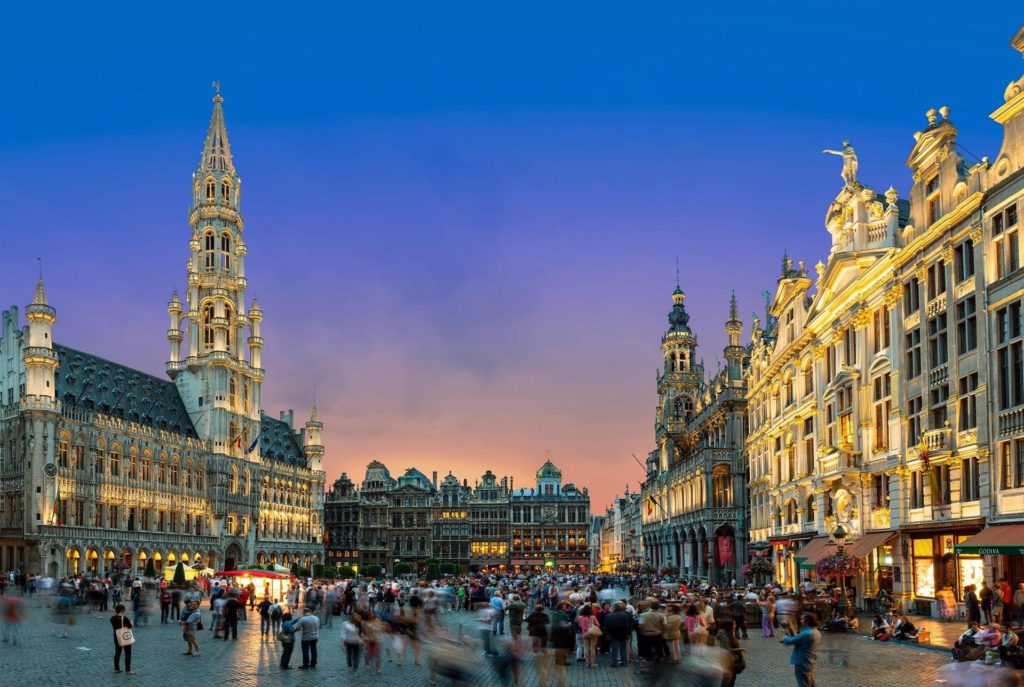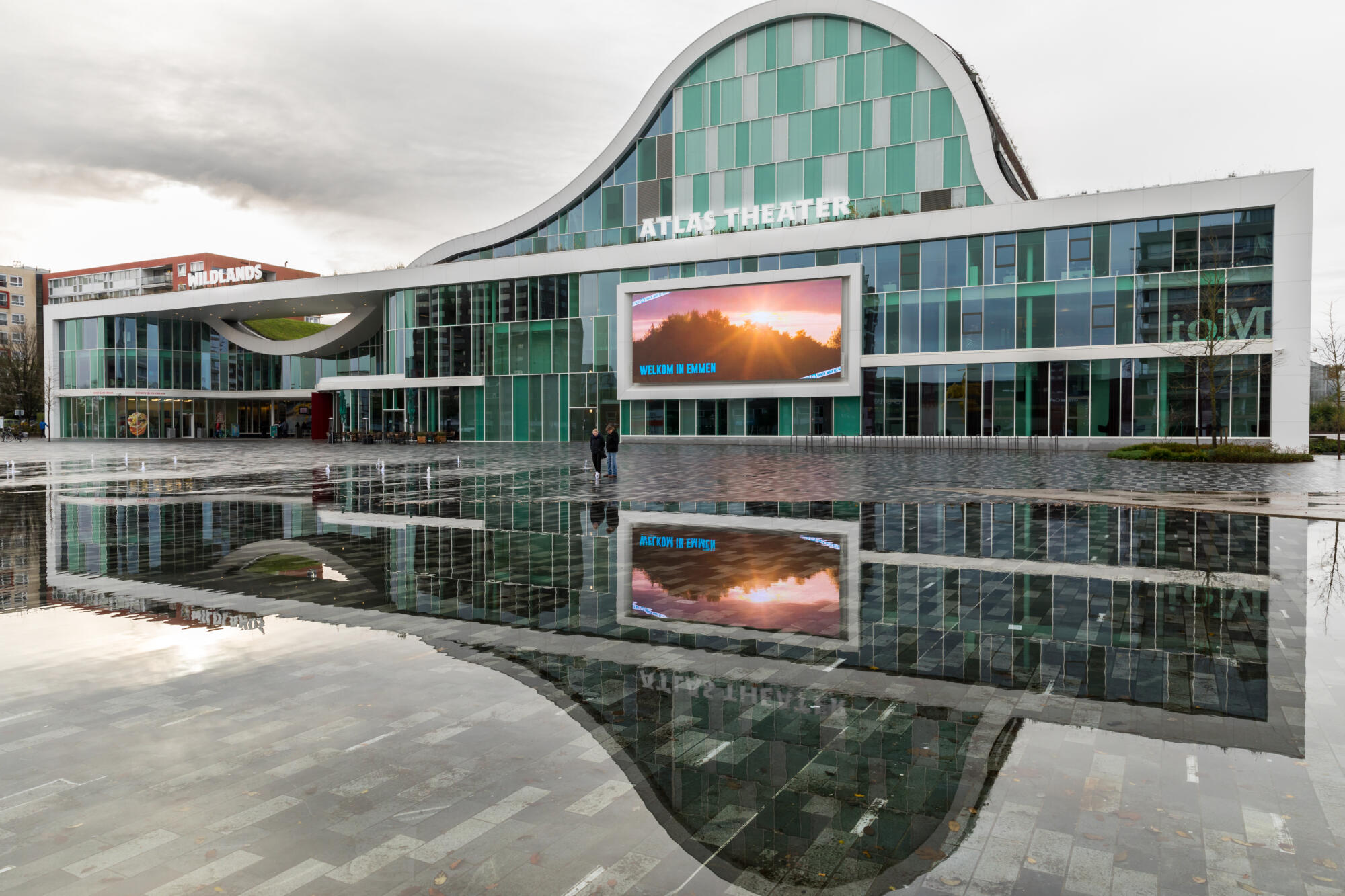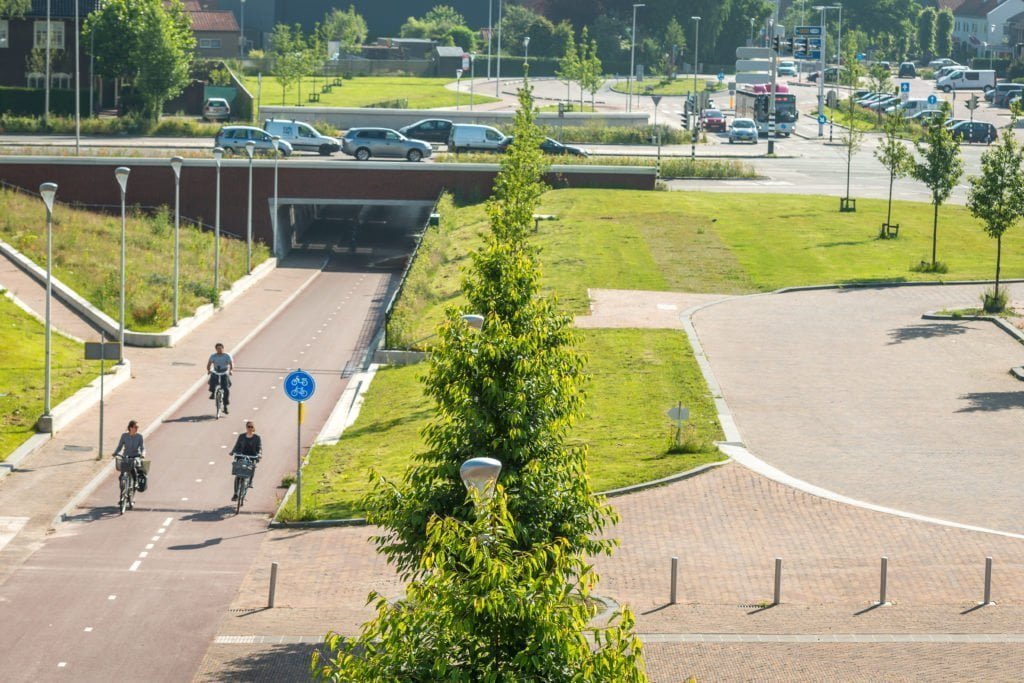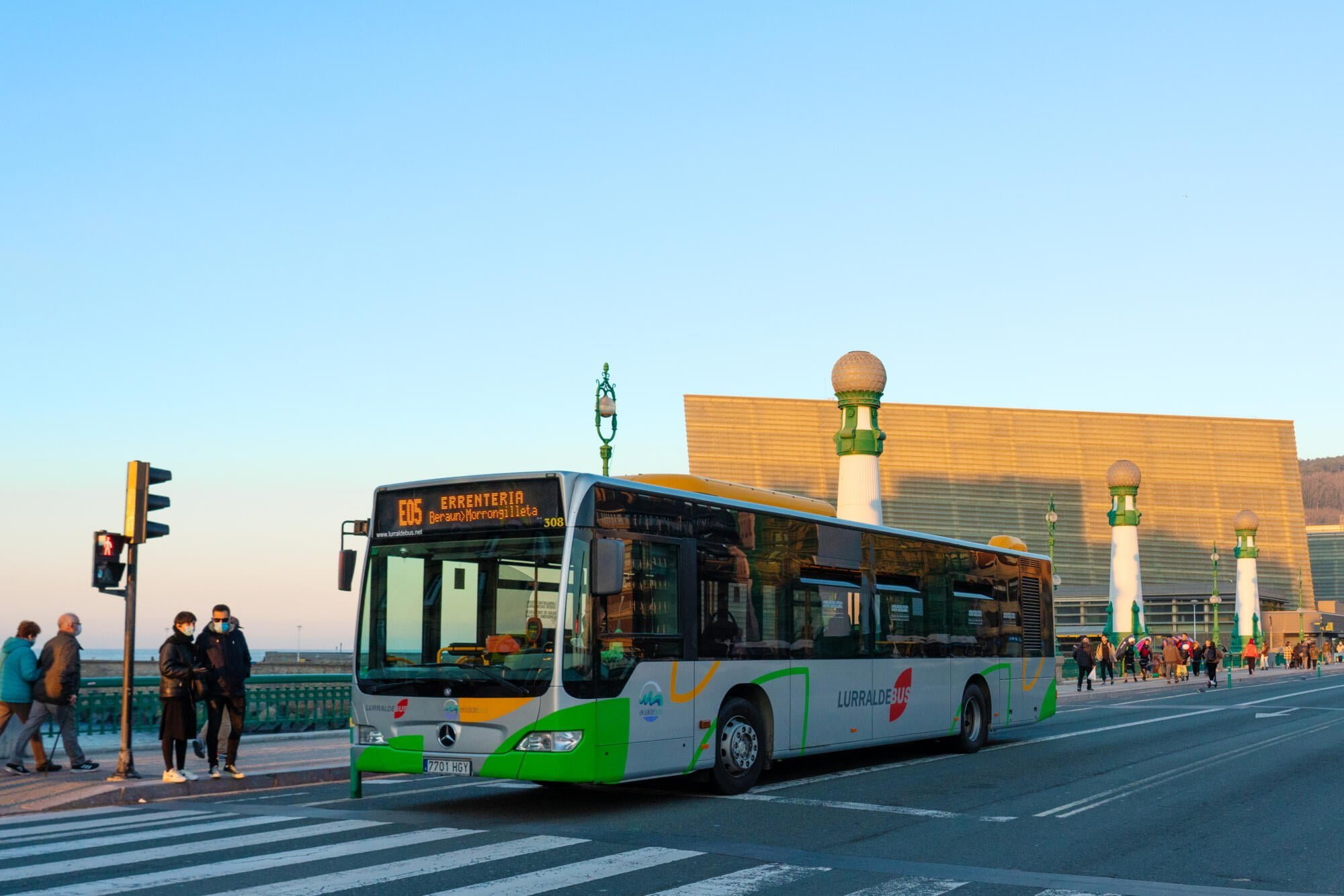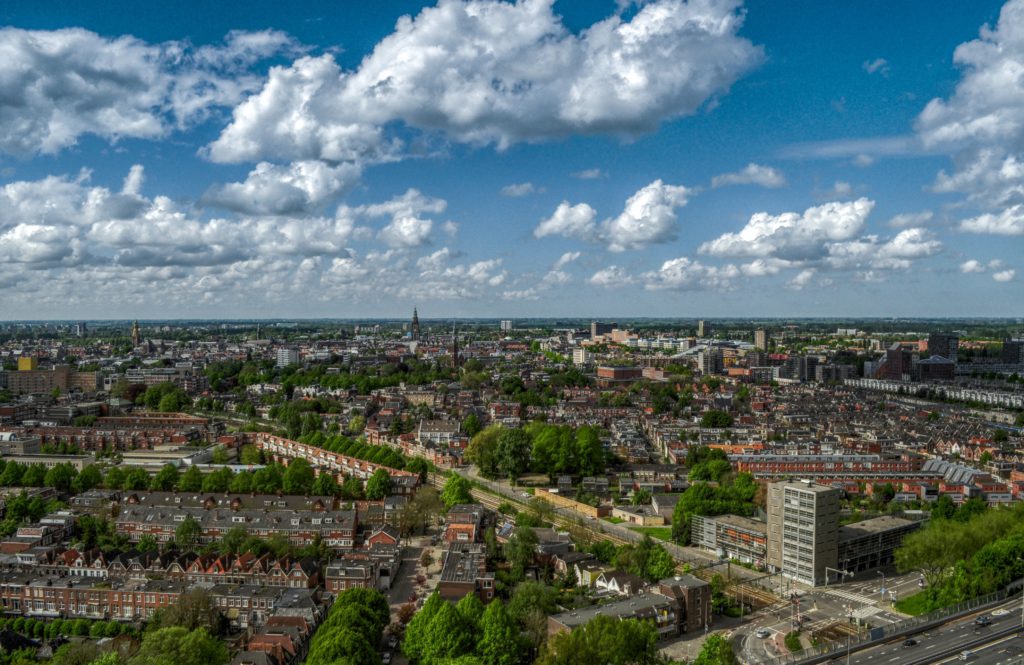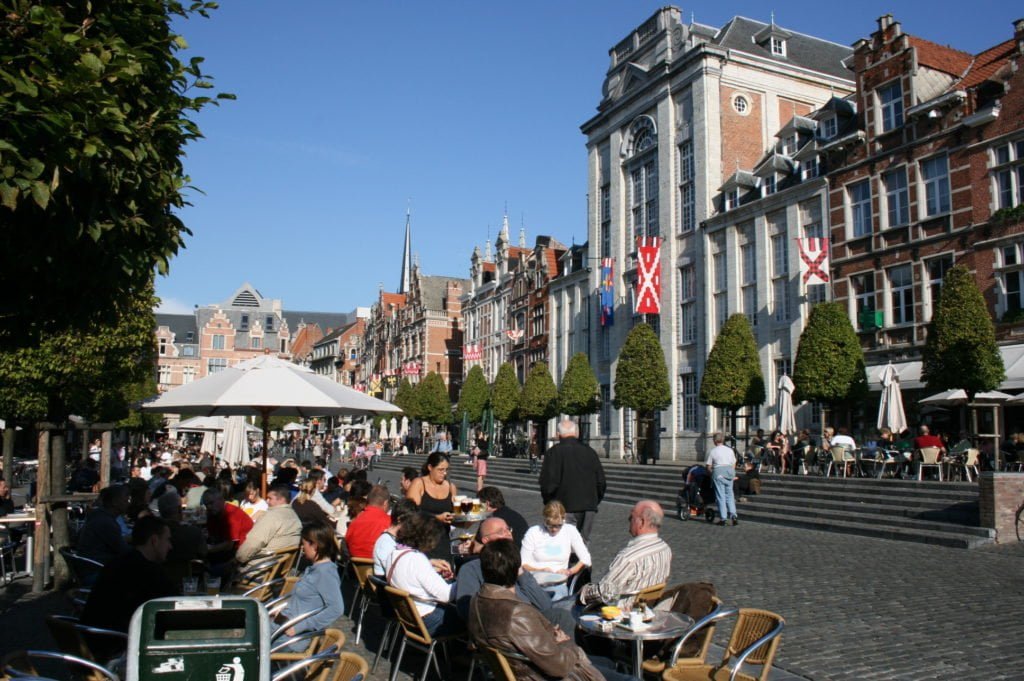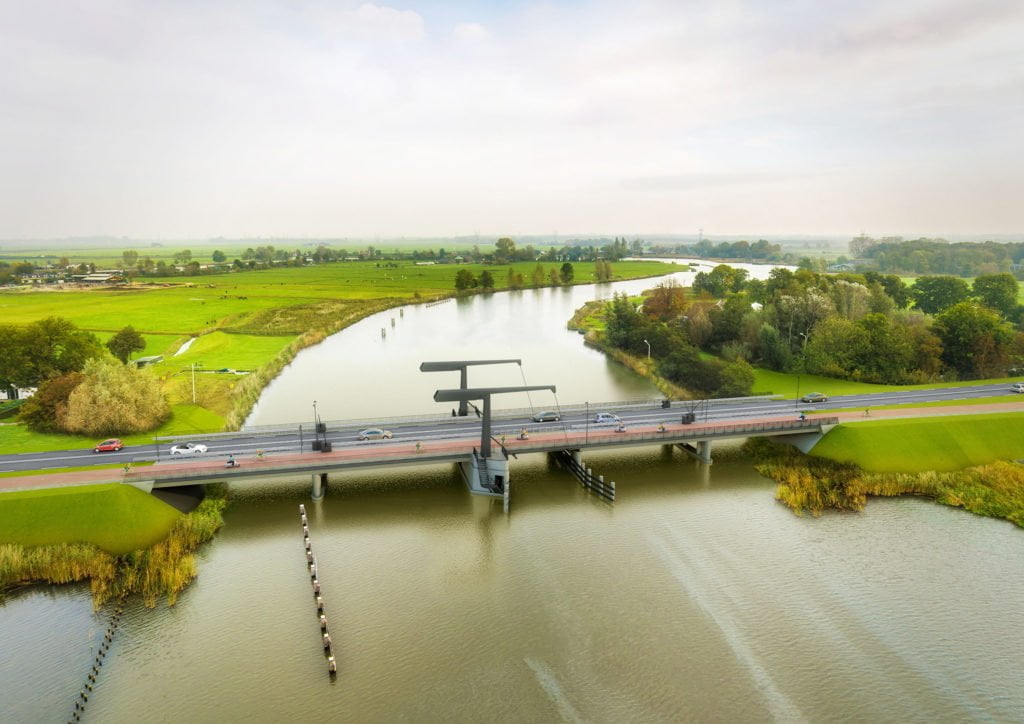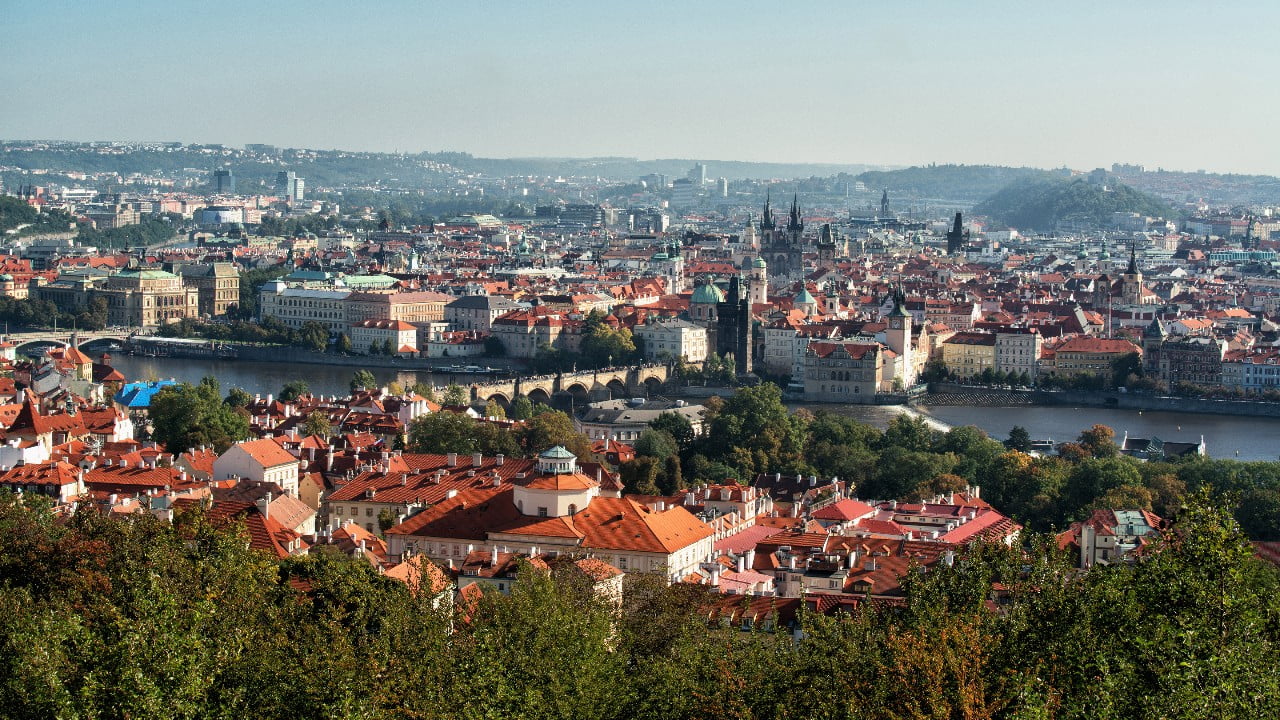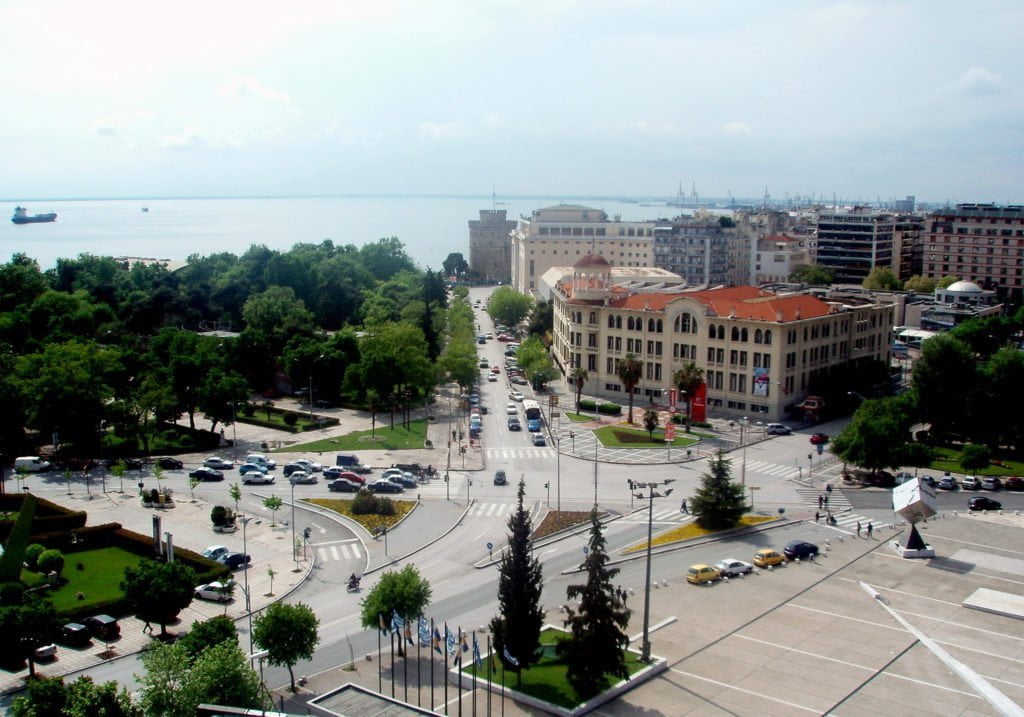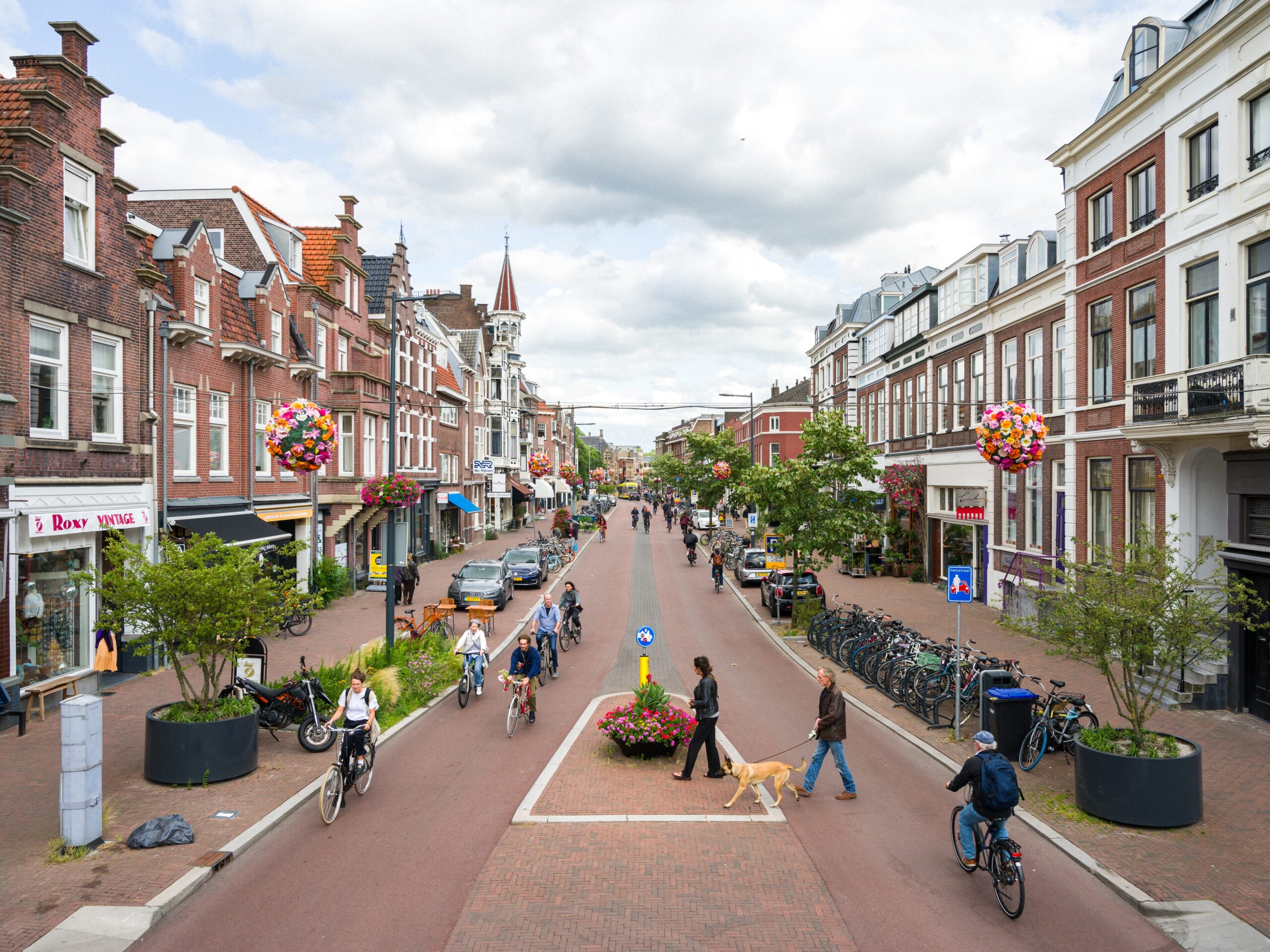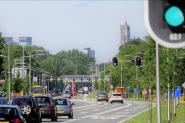POLIS' Political Group shows the mobility leadership Europe needs
European Local and regional political leaders met in Leuven, BE (30 Nov and 1 Dec) to deal with the toughest challenge for urban mobility yet. Science has shown that accelerating the shift to sustainable mobility is vital, but the actual implementation of the necessary measures is a deeply political process, and not an easy one.
Over 30 mayors, deputy mayors, and regional ministers, from across the political divide, united at the POLIS Political Group for a hands-on discussion of public opinion, integrated policies, and the future of EU legislation.
Today’s urban mobility leaders face an unprecedented challenge. The threats posed by a changing climate will make cities around the globe uninhabitable within the next decade. Motorised transport is a major offender, currently responsible for around one-fifth of the global CO2 emissions, with urban passenger transport accounting for nearly a third of this.
Yet, while the need for action is transparent, the path forward for local policymakers is far from easy. Convincing the electorate can often seem like an uphill battle.
Local mobility leaders hold the keys to progress. Across Europe, it is mayors, deputy mayors, and councilors who are putting in place some of the most pioneering and transformative changes, which- with their ear to the ground- are rooted in local needs and demands.
The Political Group seeks to support their action, fostering direct communication and cooperation between elected officials with the Mobility portfolio at the local or regional level, to discuss common challenges, shape strategies and messages, and interact with high-level representatives from European institutions to voice concerns, call for support, and highlight the crucial role of cities and regions.
In Leuven, POLIS’ Political Group showed that sustainable mobility does not just support the local economy, improve social welfare (and of course decarbonise our cities), when planned and executed properly, it wins at the ballot box too.
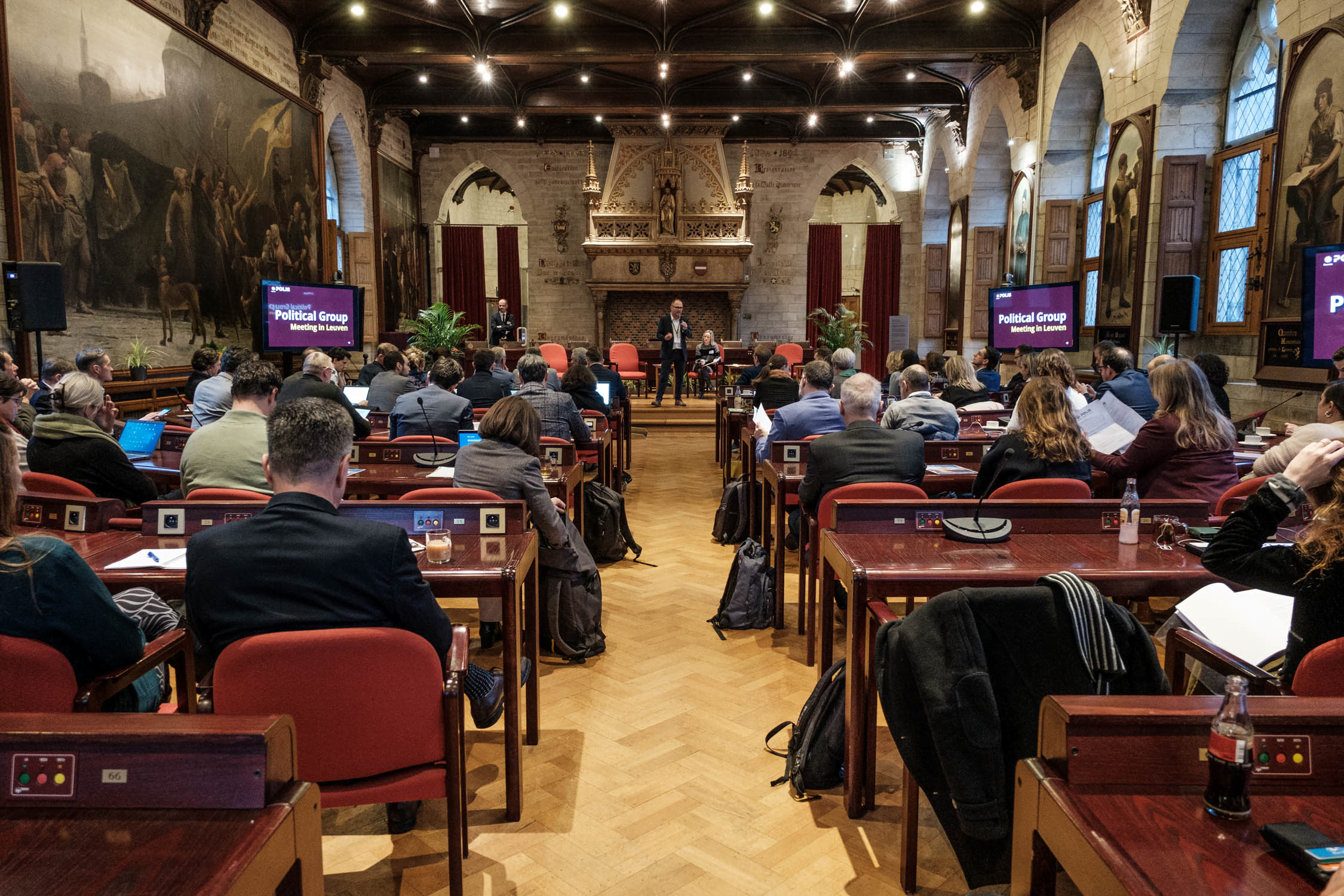
credit: Berten Steenwegen
Mobility Policies and Public Opinion
Over the last few years, we have seen a curious, if not alarming, shift in conversations around urban mobility. Low emissions zones, cycling infrastructure and park & ride schemes have expanded, making cities and regions cleaner, safer and more accessible than ever before; yet, negative reaction has been seen.
Such a response is not representative of the majority, and in fact, changes in mobility systems towards sustainability have proved incredibly popular...but after they have been implemented!
Yet, meeting opposition and making the right decisions in the face of hostility and preventing hostility and polarisation is a key challenge facing urban mobility leaders. Fear of change is a fact of human nature, however, and this fear can often fuel resistance, and even outright hostility. Leaders also have to deal with misunderstandings and polarisation, which can derail discussions and block any construction dialogue.
As politicians we must inspire and include our citizens and stakeholders to see the benefits. They have creative solutions for sustainable mobility. So therefore, it’s necessary to work together, but also show leadership towards the future. Now more than ever. As cities we are united in the challenges that we face,” said Eva Oosters Deputy Mayor for Zero-Emission Mobility, City of Utrecht- who takes over the POLIS presidency from Leuven in 2024.
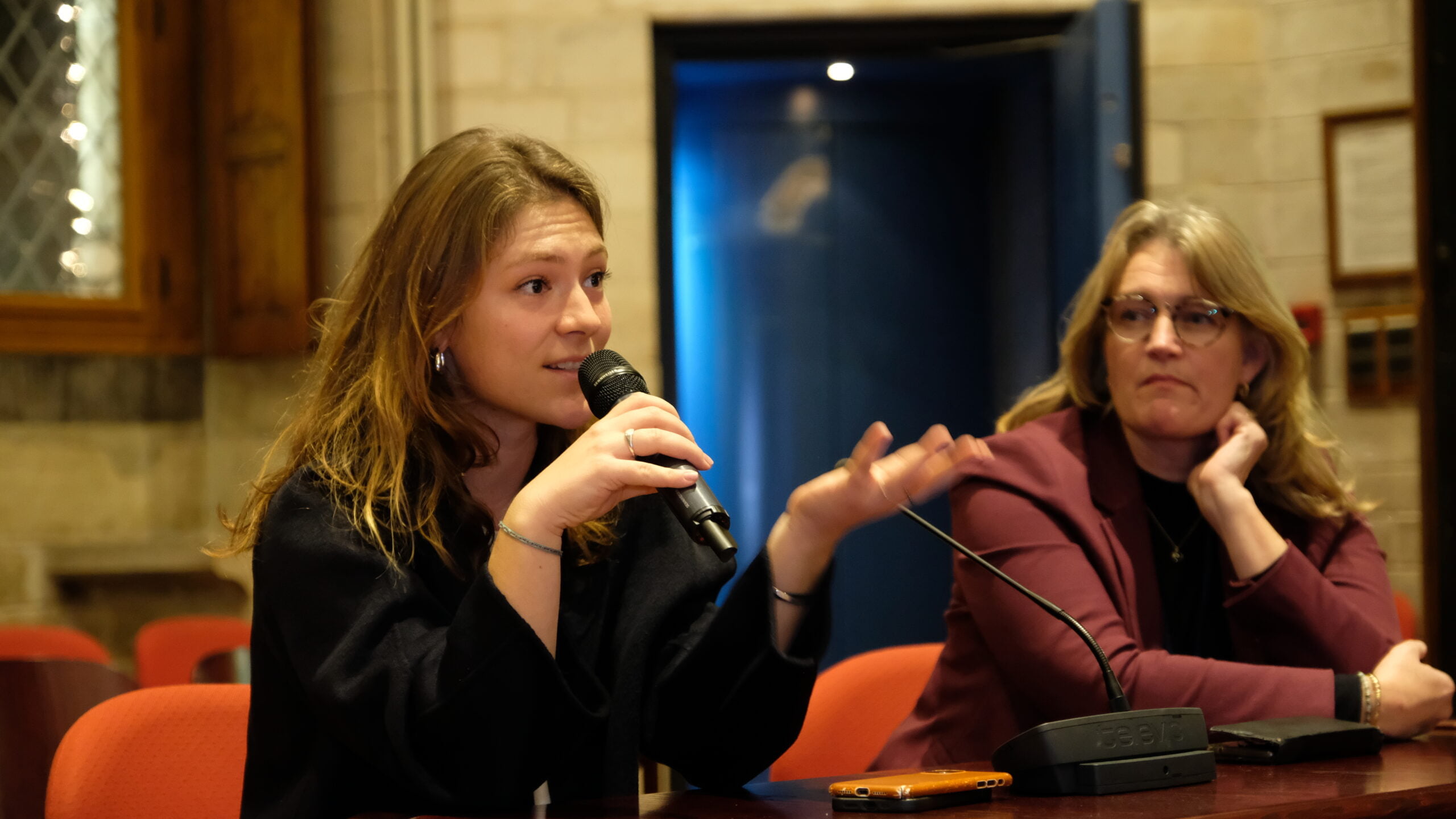
Eva Oosters, credit: Berten Steenwegen
There are many questions facing local leaders. How do they recognise, understand, and connect with public opinion? How do they engage constructively with citizens while accelerating the change so urgently needed?
Aided by Professor Stefaan Walgrave (University of Antwerp), the Political Group examined effective avenues for progress. Walgrave has spent years researching politicians’ perceptions of public opinion, and thus it was a unique opportunity for delegates to explore the ins and outs of how to navigate conservative bias, public unease, and negative responses, to pioneer positive change.

Steffan Walgrave joins the panel. Credit: Berten Steenwegen
“We know – and there is some research clearly showing it – that politicians look behind their backs constantly and try to know if the public agrees with them. If not, they will refrain from taking a policy initiative, reframe it, or first try to convince the public of a certain position or stance on a policy before they actually enact it,” said Walgrave.
“Often mobility policy is a kind of symbol. It is related to people having the impression that they lose comfort, and many feel left behind or not represented.”
Confronting this is something POLIS Political Group members contend with on a daily basis- and thus sharing their experiences and advice for repairing and building communications channels with citizens and businesses.
“Changes in transport that improve sustainable forms of mobility and the quality of life can no longer be imagined otherwise after a short time. However, the moment of disruption is often critical for politicians, as a few voices in particular become loud and dismissive. For this reason, good communication and participation formats are needed to shape the transport transformation together with the people,” echoed Elke Zimmer State Secretary for Ministry of Transport Baden-Württemberg
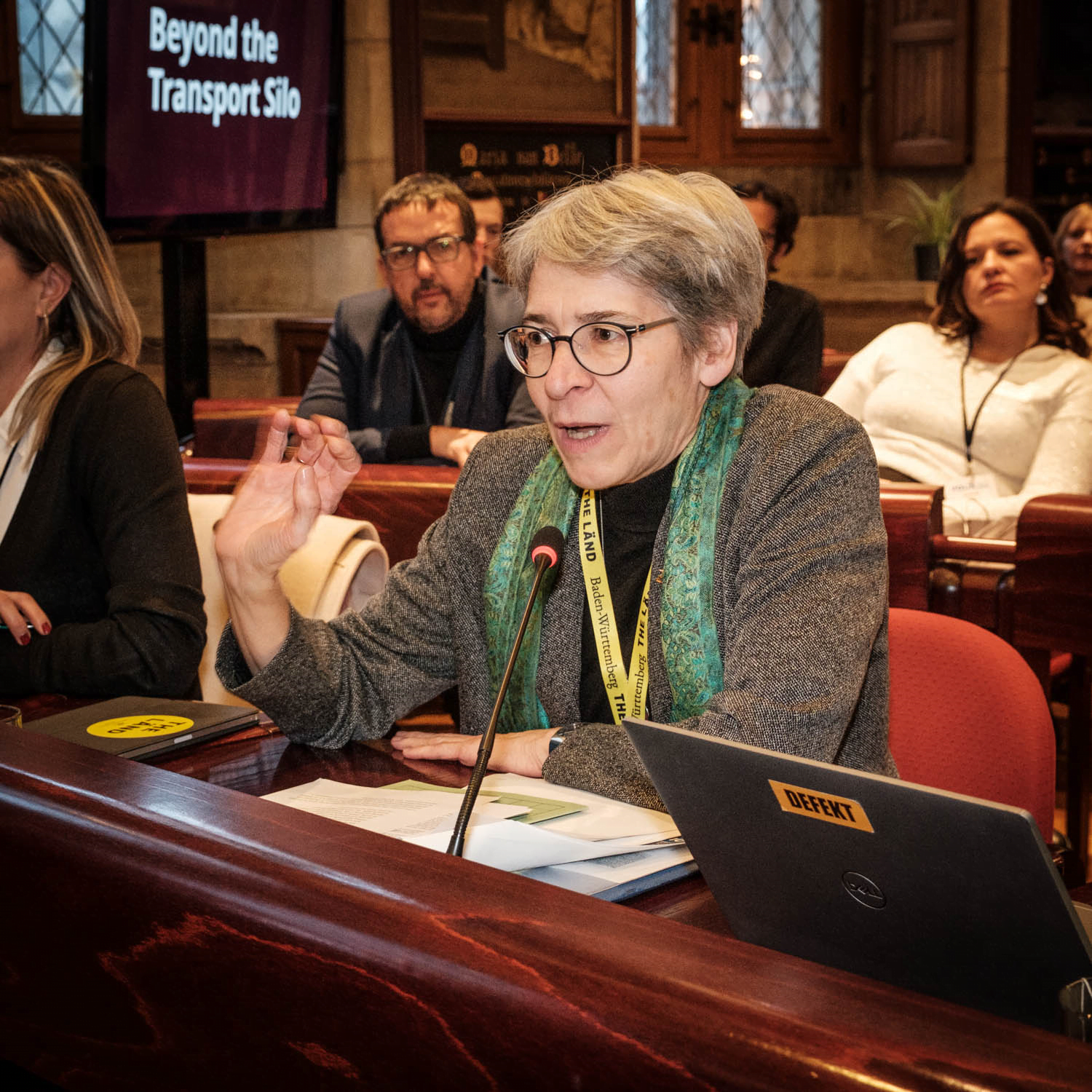
Elke Zimmer, credit: Berten Steenwegen
Beyond the Transport Silo: building bridges with other policy domains
If leaders are to cooperate with citizens, they need to cooperate with one another first.
Breaking down silos. This is a phrase which has come to dominate the urban mobility lexicon; yet, while we may be quick to voice our eagerness to work together, it is slower to play out in practice.
While policymaking may adhere to neat parameters, unfortunately, climate change is not so scrupulous.
“Mobility is not only a question of how to organise transport in the city, it is fully interconnected with so many other competences,” says David Dessers, Vice Mayor, Mobility, Climate and Sustainability, City of Leuven.

David Dessers- credit: Berten Steenwegen
What are the barriers? Why have they endured? And how can we re-engineer more integrated policymaking?
Together, the Political Group explored avenues for cooperation between civic departments, and the opportunities for working with public health, land use, real estate- and others- to ensure comprehensive action which matches the major threats posed by climate change.
Working with urban planners and housing developers emerged as key. Many cities are facing a housing crisis, propelled by rising real estate costs, pushing inhabitants to relocate to the suburbs, with commuter flows having significant impacts on congestion. Thus also aligning municipal aims and ways of working is also critical, creating a cohesive regional approach.
TEN-T is key: Obligations and Opportunities for the Urban Node
However, local politicians cannot achieve this alone, they need support from international decision makers. This is where POLIS’ political group steps in, connecting local and EU-level mobility leaders.
On the agenda in Leuven was the EU’s trans-European transport network policy (the TEN-T policy). This is a key instrument for developing coherent, efficient, multimodal, and high-quality transport infrastructure across Europe. Over the last few years, TEN-T legislation has been undergoing revision and is expected to enter into force in early 2024, and will include roads, railways, inland waterways and short sea shipping routes linking 420 urban nodes.
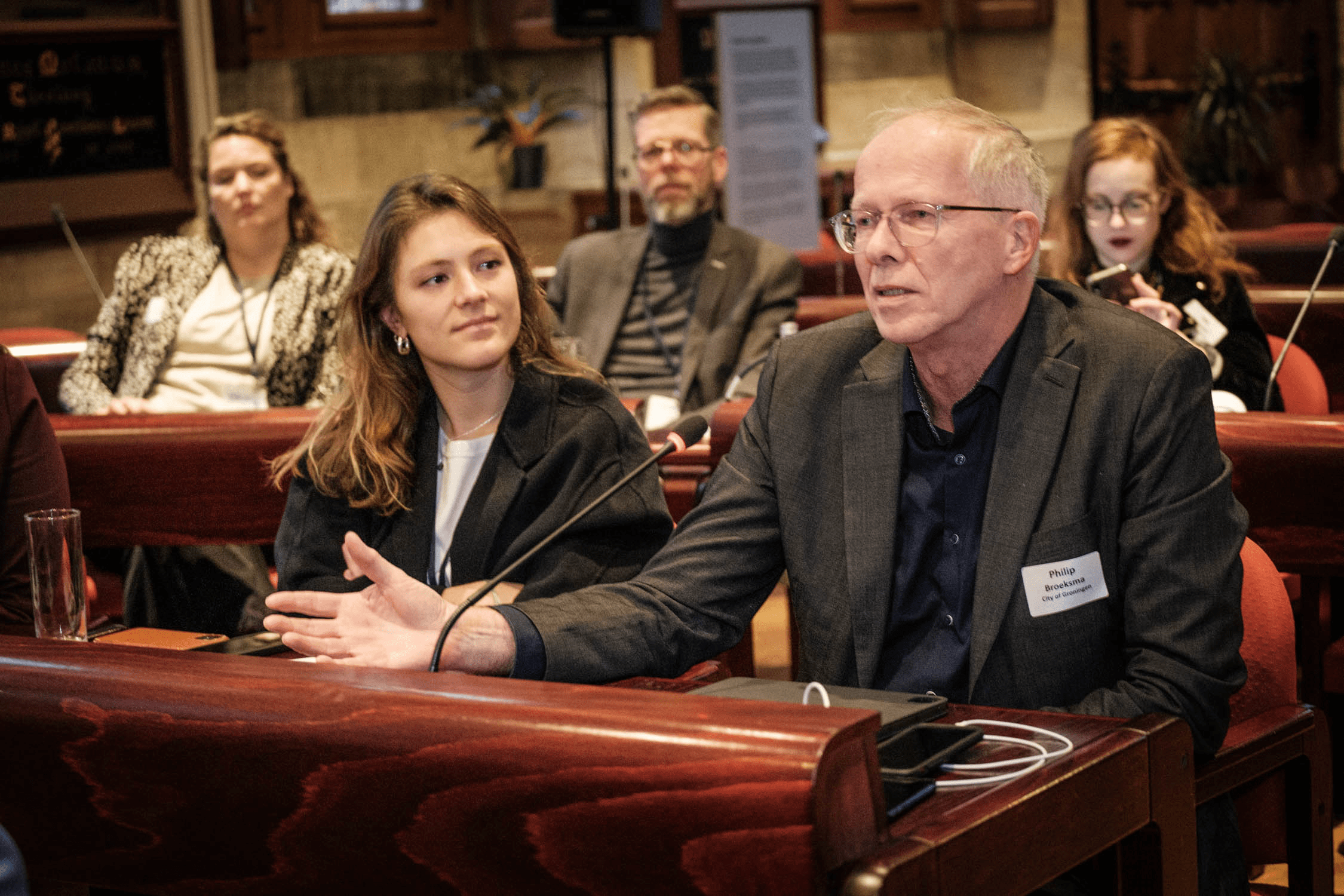
credit: Berten Steenwegen
Understanding and responding to such regulatory changes will be essential if local leaders are to capitalise on European policy to strengthen economic growth and competitiveness their cities and regions, and support pursuit of ambitious sustainable mobility targets.
Yet, local decision-makers do not often get the opportunity to engage directly with European policymakers, and have their voices heard.
This Political Group meeting did just this. Joined by Isabelle Vandoorne, Deputy Head of Unit, Research and Innovation (and Urban Mobility), European Commission, POLIS members, were privy to the latest updates, discussing and debating how legislative shifts in the EU’s trans-European transport network policy (the TEN-T policy) would play out on the ground.
About the POLIS Political Group
The Political Group seeks to support their action, fostering direct communication and cooperation between elected officials with the Mobility portfolio at the local or regional level, to discuss common challenges, shape strategies and messages, and interact with high-level representatives from European institutions to voice concerns, call for support, and highlight the crucial role of cities and regions.
For further information, please contact Pedro Homem de Gouveia: pgouveia@polisnetwork.eu
